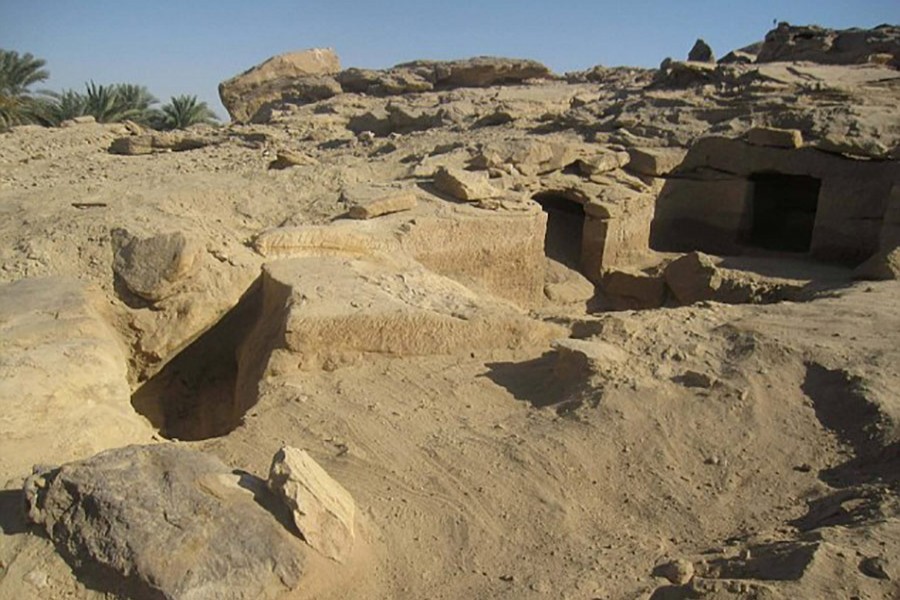Archeologists have uncovered four intact burial sites for children dating back to the 18th Pharaonic Dynasty, some 3,500 years ago, in Upper Egypt's Aswan province, the Egyptian Ministry of Antiquities revealed on Thursday.
The new discovery is one of several others found also in Aswan and covering different eras of Egypt's ancient history, according to Mostafa Waziri, Secretary-General of the Supreme Council of Antiquities.
"The Swedish-Egyptian mission working at Gebal el-Silsila area uncovered four intact burials for children, the Austrian mission at the archaeological hill in Kom Ombo town uncovered part of a First Intermediate Period cemetery, and the Egyptian-Swiss mission in Aswan discovered an incomplete statue dating back to the Greco-Roman era," Waziri said in a statement, reports Xinhua.
Carved in limestone, the statue unearthed by the Egyptian-Swiss mission is headless with the feet and right hand missing.
Preliminary study on the statue reveals that it belongs to a lady and the dress she wears is similar to that of the Greek goddess "Artemis," the goddess of haunting and wilderness.
Egypt has witnessed several big archeological discoveries this year in different parts of the country, including Pharaonic tombs, statues, coffins and mummies, highlighted by the remains of a Roman-style Hellenistic gymnasium, remains of a funerary garden, a pyramid's burial chamber and a statue believed to be of ancient King Ramses II.


